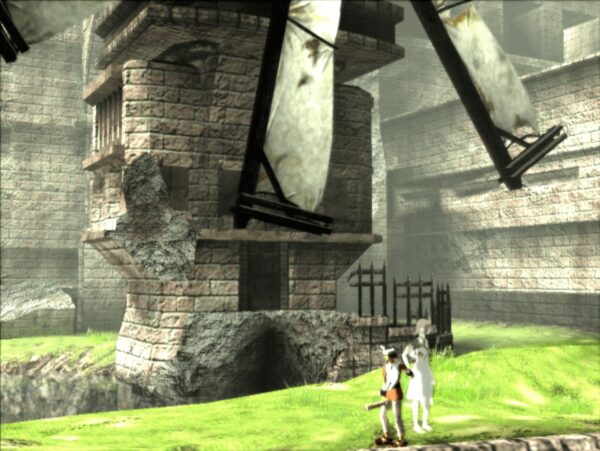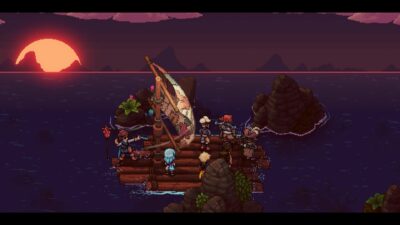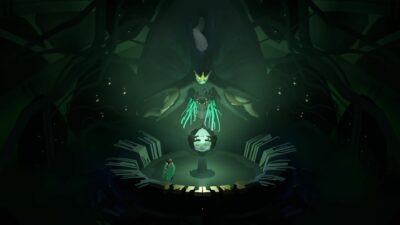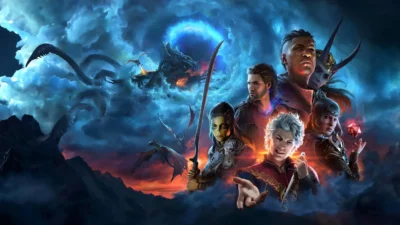
Minecraft’s in the list, don’t worry. In issue 38 of Wireframe, we were inspired by cover star Main Assembly to look at a few other construction-focused titles out there. Turns out there’s more than a few, and if we didn’t narrow the list down to just 20, the entire magazine would have been about them, so yes one of your favourites might be missing. Sorry.
Anyway, here’s those 20 great construction games you can play right now. They’re not all Minecraft-alikes, we’ve tried to vary it a bit, but they all involve the act of making things into other things, as all makers should enjoy doing.

Stormworks: Build and Rescue (2018)
From British developers Sunfire Software, Stormworks: Build and Rescue is that rarest of things in video gaming: a coastguard rescue simulation. What that breaks down to is a comprehensive and challenging marriage of block building and growing a company, along with conducting rescues and missions. The building side, in particular, gives the game a real distinction, getting you designing vehicles – often, er, quite unusual-looking ones – from minuscule blocks. It’s a mechanic that’s ignited a flourishing fan base, sharing their designs and work. A taxing, challenging game certainly, but an utterly engrossing one.

Kerbal Space Program (2011)
And it all looks so easy in the movies. A game that was in public stages of development for four years before it officially launched, Kerbal Space Program charges you with setting up and running, well, a space programme. In this particular case on behalf of an alien race. Truth be told, they probably regret asking. It’d be fair to describe what happens next as both educational and just a little intense, a game in which success has to be earned. It’s also absorbing, witty, and a huge time-gobbler, made all the more so by the active community of mods, and the emergence of a full sequel due next year. We can’t bloomin’ wait.

Dreams (2020)
If ever there’s a purchase worth digging out the old ‘you get out of it what you put in’ cliché for, surely Dreams is it. From LittleBigPlanet creators Media Molecule, it’s not unreasonably described as a game universe, giving PlayStation 4 gamers an extraordinary collection of tools to fashion their own creations. The scope is far beyond making games (music, art and, well, stuff are well within its purview too), although there is a short, strong, and involving story mode at the heart of it, that itself travels through many genres. The ‘Made In Dreams’ badge is likely to crop up a lot over the coming years.

Banjo-Kazooie: Nuts & Bolts (2008)
Ten years after Rare debuted Banjo-Kazooie as a Nintendo exclusive, it made the jump to the Xbox 360. It wasn’t just a change of hardware for the series either, as the game itself took a little bit of a sidestep. The emphasis wasn’t entirely on platforming, but also constructing your own vehicles to get you through the game. A generous collection of options there were too, with over 1000 components to toy with, married up to an interface that impressively never got in the way of you mashing things together. End result? An ambitious sequel, that got a slightly unfair mixed response on release.

LittleBigPlanet (2008)
On its release, the first LittleBigPlanet felt like something really quite different for the PlayStation 3. Not just because it had the beating heart of a traditional platform game, but also the customisable options were so dramatically different. The game – a delight to play, even without the tinkering – was sold heavily off the back of being able to create levels, change the central character, and basically play around with every facet of the game as provided. It was the debut game from Media Molecule, itself formed by former employees of Peter Molyneux’s Lionhead Studios. Sequels have followed, and are just as delightful.

Autonauts (2019)
A charming game that gives you a spaceship, worlds to explore, and planets to colonise. Under the surface, Autonauts is also a very well done introduction to visual programming techniques. Above the surface, you create items for crafting and then use bots to automate the process, making sure you get the instructions just right. As you colonise more and more worlds, your bots need more and more instructions, and the complexity increases. It’s a deceptively huge game this, presented in an accessible, bright, and cartoony visual style. It aims towards the younger end of the market, but its charming simplicity is cover for a time-gobbling game.

Astroneer (2019)
Set in the 25th century and again with a core of space exploration at its heart, Astroneer takes you to different planets, and encourages you – either alone or in multi-player – to pull together the bits and bobs for bases, gathering the required resources and surviving in increasingly tricky terrains (that bring with them differing, escalating demands). In spite of limited oxygen and the need to explore the unknown to survive, this is actually quite a relaxed game, without a narrative bedrock to fall back on. Instead, it’s a slow burn, beautiful to look at, with a bit of a learning curve.

House Flipper (2018)
Fine practice for being an adult, this. House Flipper tasks you with buying a home, stripping out the junk, cleaning it up, planning and restructuring the interiors, and then selling the place (and dealing with demanding buyers) so that you can do it all again. Nice and relaxing after a hard day at work, right? And yet, it really is. Lots of small little jobs, a real sense of achievement, and the chance to smash up some plasterboard without having to explain yourself afterwards. The Garden Flipper DLC is well worth the extra investment, too.

Factorio (2018)
The exhausting logistics of designing and running factories is made admirably approachable in Factorio. As with most games of this ilk, you spend a decent amount of time accruing resources, before you then put your production facilities together and gradually escalate your operation.
There’s an underlying warning of the perils of capitalism here, too, as you balance the pollution of your factories against the protests of the locals. Pure escapism.

Cities: Skylines (2015)
The dominance of the SimCity series meant there was once some hesitancy to give what became Cities: Skylines the green light. The turning point was Maxis and EA’s infamously disliked 2013 SimCity entry; afterwards, Paradox Interactive rolled the dice on Cities: Skylines. The result is the clear market leader in city planning strategy titles, with a dozen expansion packs and counting to date. You can read more about Ian’s metropolis-building antics on page 63.

Anno 1800 (2019)
Regarded as a return to form for the hardly struggling Anno series, this entry attempted to answer hardened fans’ complaints that recent games had reduced the complexity somewhat. Anno 1800 took the series back to its historical roots, with an industrial revolution setting, and as always you have to build things up from scratch. You juggle production infrastructure, resources, and expansion, and things really open up as you build ships and go exploring. It’s a ‘book two weeks off’ game.

Tropico 6 (2019)
It’s impossible to imagine a starkly authoritarian leader emerging in a First World nation, so we need games to fill the gap. Behind the Tropico series’ knockabout veneer lies a complex marriage of government, construction, and hard strategy, as the player is asked to be ‘El Presidente’, the head of a fictional Caribbean island. The satirical edge gives it a slightly different flavour to its rivals, and this sixth instalment doesn’t reinvent much, but cherry-picks the many highlights of the series to date.

Minecraft, obviously (2009)
The game that’s never going to stop being built. Rather than make a sequel, its developers keep expanding on Minecraft’s existing foundations. A decade on, and millions of people are still crafting and building on a daily basis. Minecraft is the most influential and popular building game of its generation – a genuine phenomenon whose tools have even been used to plan out the action of a feature film (and its own movie is on the way, too). It’ll outlive us all.

Shoot-’Em-Up Construction Kit (1987)
Commonly known as SEUCK, here was an early attempt to give non-programmers the tools to make their own arcade games. In truth, it was all a bit limited, and most of the resulting games that flooded the Amiga and Atari ST public domain were samey takes on the standard 2D shooter. But as a stepping stone into game design, SEUCK deserves its place in history alongside such contemporary packages as the Professional Adventure Writer and Graphic Adventure Creator.

Dragon Quest Builders 2 (2018)
This sandbox spin-off hides some impressive strategic and RPG mechanics beneath its cartoony visuals. In Dragon Quest Builders 2, the brilliance lies in the details: you can become obsessed by the tiniest of things as you put rooms together, and likely will. But then alongside that is a detailed RPG adventure to follow. It’s a hybrid that comes together impressively, with plenty of fan service too for devotees of earlier Dragon Quest titles.

Super Mario Maker 2 (2019)
Super Mario Maker and its sequel have made plain just how brilliant the level designs are in the main Super Mario games. As Nintendo’s peerless construction kits for the Wii U and Switch have proved, it’s relatively easy to design a difficult Super Mario level; crafting a stage that’s challenging, clever, and fun is an entirely different proposition. Nevertheless, we’ve seen some spectacularly imaginative designs emerge from the Maker community over the years; the constant addition of new elements (such as the recently added overworlds) has only fanned those creative flames.

Planet Coaster (2016)
Taking huge influence from Theme Park and RollerCoaster Tycoon, the hugely successful Planet Coaster is a detailed, scientific, and compelling theme park construction mix of strategy and simulation. Put together by Cambridge-based Frontier Developments, it doesn’t stray too far from the idea behind its forerunners, but the number of options available and the amount of creativity it and its add-on packs afford is gigantic. One search of YouTube offers ample evidence of that. Jurassic World Evolution and the more recent Planet Zoo have subsequently been developed and released too, both in a similar vein.

RimWorld (2018)
With its catalogue of influences including classic science fiction such as Dune and Firefly, RimWorld kicks off by leaving three people marooned on a far-off world. The challenge is to build from there. Two factors give this distinction. Firstly, the pared-down graphical style of the game (you won’t need a beast of a machine to run it as a consequence). Secondly, an AI story generator that adds a relationship element to the action, and some degree of unpredictability to it. It doesn’t always quite hang together, but it’s ambitious, interesting, and wears its quirky heart and love of sci-fi very much on its metaphorical sleeve.

Two Point Hospital (2018)
If Planet Coaster builds on the influences of Bullfrog’s Theme Park, then Two Point Hospital is the obvious heir apparent to the same company’s joyful Theme Hospital. Appreciating medical games may not be most people’s idea of escapism in these taxing times, the game challenges you to build up a hospital, while researching a cure for the assortment of baffling and played-for-comedy extreme diseases. It certainly captures the spirit of its classic ancestor – and indeed veers very closely to it – unsurprising given that the some of the creators of Theme Hospital are behind the new game.

Train Valley (2015)
A family-centric successor to the likes of Railroad Tycoon and Transport Tycoon, Train Valley and its sequel follow the same idea of getting you to put together a locomotive infrastructure, starting in the 19th century and heading off into the future. It’s the cartoony approach that makes this instantly accessible, as well as the welcome addition of shorter, bite-size game modes to tackle. A strategy game that, for good reasons, doesn’t threaten to eat up your evenings all in one go. There are games that do train management a lot deeper, but this is a nice way into the genre.





